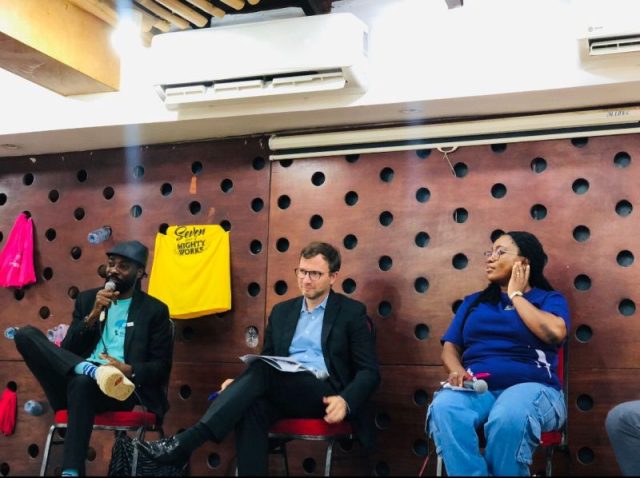By Seli Baisie
Alliance Française Ghana organized a week-long Environment Week in Accra, themed “Curbing Fast Fashion and Plastic Pollution,” to commemorate World Environment Day and World Ocean Day.
Moderated by Richmond Kennedy Quarcoo, Executive Director of Plastic Punch, the event featured representatives from the Environmental Protection Agency, the Ministry of Fisheries and Aquaculture Development, and the French Development Agency.
The aim of the event was to raise awareness about environmental protection.
This year’s World Environment Day emphasizes land restoration, halting desertification, and building drought resilience under the slogan “Our land. Our future. We are.”
Intimate discussions highlighted the alarming rise of fast fashion and plastic pollution.
Mr. Richmond Quarcoo detailed the negative impacts on Ghana, revealing that in 2021, Ghana imported $214 million worth of used clothing, making it the world’s leading importer.
Mr. Quarcoo explained, “Approximately 70% of all garments in the world are composed of plastics. Garments, particularly those associated with fast fashion, are crafted using inexpensive plastic materials.
During the process of wearing and laundering these garments, microplastics are dispersed, potentially affecting humans and marine life.”
He added, “Ghana imports 15 million units of secondhand clothing weekly. In 2021, the country imported $214 million worth of used clothing, thereby becoming the world’s leading importer for the year.”
Christophe Cottet, Country Director of the French Development Agency, noted that fast fashion and plastic pollution are global issues.

“The reason why it is taking so long to curb this menace is that organizations find it profitable. For the plastic producers, or the garment producers, the business is profitable for someone,” he remarked.
Cottet also mentioned initiatives by the French Development Agency to tackle plastic pollution.
Mr. Enoch Boadu Amo from the Ministry of Fisheries and Aquaculture Development pointed out that the affordability of foreign materials compared to locally produced ones drives fast fashion and plastic pollution in Ghana.
Mr. Amo outlined the Ministry’s efforts to combat plastic pollution, including reducing problematic plastics, implementing a marine management plan, and engaging in global action partnerships.
He emphasized the need for collaborative approaches to reduce marine debris and the challenges in reducing the use of problematic plastics.
Mr. Amo also stressed the importance of institutional efforts, additional funding, and public education in addressing these environmental issues.


















